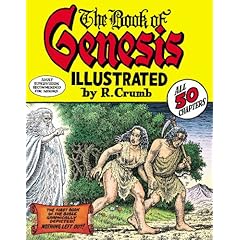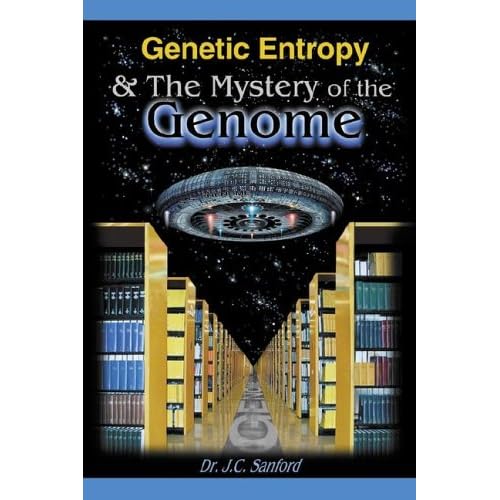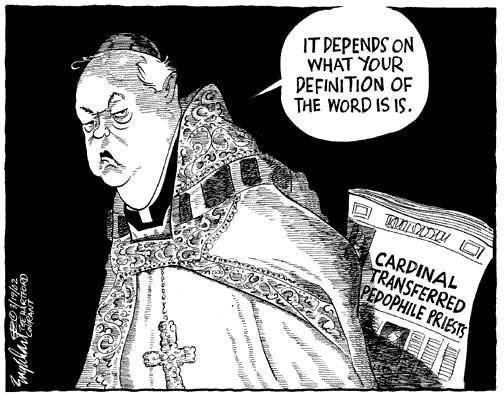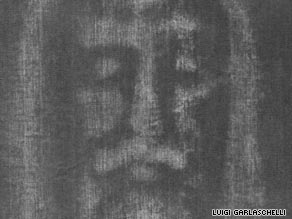



 According to the Daily Telegraph (a.k.a. Daily Torygraph) the Archbishop of Canterbury has accused the government of treating religious faith as an "eccentricity" practised by "oddities". Dr Rowan Williams said ministers were wrong to think that Christian beliefs were no longer relevant in modern Britain and he criticised Labour for looking at religious faith as a “problem” rather than valuing the contribution it made to society. He added that political leaders should be more open about their beliefs.
According to the Daily Telegraph (a.k.a. Daily Torygraph) the Archbishop of Canterbury has accused the government of treating religious faith as an "eccentricity" practised by "oddities". Dr Rowan Williams said ministers were wrong to think that Christian beliefs were no longer relevant in modern Britain and he criticised Labour for looking at religious faith as a “problem” rather than valuing the contribution it made to society. He added that political leaders should be more open about their beliefs.No and I would go further and say all local authority schools should also be 100% secular. Paul Price, Carmarthen, United Kingdom
Religion and politics should stay separate.
I hate using pain and misery to make a point, but the Church in Ireland shows us the dangers. O.W.It is absolutely right for the Government to ignore religion. This is 2009 - laws should be based on democratic values, not superstition. If you want to see what a society run according to religious rule of law is like you only have to look at Iran. Richard Lewis, Cambridge
Organised religion has caused more war than peace. Lucien Piers
an "eccentricity" practised by "oddities" Sounds spot on to me [paulmathome], London
Already we have the politicians in a so-called 'class war.'
All we need now is for 'faith war' where they needle each other about which religious sect they belong to. NO NO NO to religion in politics! Norman
The first irrational response is 48th in rank:
Strange thing – countries or states that seek to deny Christ normally end up as terrible places to be in [grainsofsand], United KingdomI can imagine what people would reply if the same question was asked in the U.S....
the assertion that "certain features of the universe and of living things are best explained by an intelligent cause, not an undirected process such as It is a modern form of the traditional teleological argument for the existence of God, but one which avoids specifying the nature or identity of the designer. The idea was developed by a group of American creationists who reformulated their argument in the creation-evolution controversy to circumvent court rulings that prohibit the teaching of creationism as science. Intelligent design's leading proponents – all of whom are associated with the Discovery Institute, a politically conservative think tank, believe the designer to be the God of Christianity.It's the article written on Wikipedia by, obviously, Intelligent Designers themselves. One of the main proponents of ID, W. Dembski, is a theologian/philosopher at the Southwestern Baptist Theological Seminary, and all his writings, talks and work incorporate and propagate christianity very heavily. (He is also trying to use mathematics to support the ID religion but his papers are laughable.) However, someone, writing under the name Joe G and posting in Shallit's blog, insists that (oh yes, he's a bit repetitive):
ID doesn't require the supernatural.I asked him to modify the Wikipedia article (and also tell Dembski and the others about his non-beliefs in gods and religion). But he shies away from doing so. Wikipedia is a public document which can be changed if the information provided is not correct. However, Joe G will not do that. And even if he attempts to do so, leading IDists will not allow him. The reason is simple: ID is a religion, not a science. Scientific entries of Wikipedia welcome modifications (and they become better and better) and corrections of mistakes. But ID is of theological nature and, as such, it relies on faith and dogma.
Does ID require a belief in "God"? No.
ID does not require a belief in "God".
ID does not require the supernatural.
All IDists are not religious.
I am an IDists and don't care about religion.
ID does not say anything about worship- nothiung about who, what, where, when nor how.
ID does not say anything about giving service.
ID is not based on any religious doctrine.
ID does not say anything about the supernatural.
ID does not require a belief in "God".
So the bottom line is ID is religious if and only if we change the definition of religion.
The designer could be "God" and that would not mean ID is religious.
ID does NOT argue for the existence of "God".
What IDists do does not have any impact on ID.
IDists have not written that ID is an argument for the existence of "God".
ID is about the DESIGN not the designer(s).
The Wikipedia entry on Intelligent Design can be refuted to any ID FAQ posted on pro-ID websites.
They should be sued for posting such nonsense and then perhaps they would think BEFORE they publish.


In response to Mr. Rimmel: Would you seriously take the time and read the Bible, let's say, the NASB or New King James translation, for yourself and not rely on what others say before you make statements that undermine honesty and integrity? You will find that God is the author of Science and He upholds true science. You will be astounded at all the scientific information to be found in the Bible. And a good site to investigate yourself would be Answers In Genesis as well as www.icr.org, with many scientists putting their work out there for you and I to intelligently sift and seperate, coming to conclusions that are well grounded. You will do yourself justice if you give the time to check these out. And if you don't believe that Ray Comfort is credible, then why are you so concerned with what he wrote only in the introduction? If it is not credible to you, it will not be credible to other thinkers, so relax and let it die down on its own. You have nothing to lose by Mr. Comfort speaking his mind on the works of Darwin, do you? If Darwin's work is unbeatable, then it should stand up to Ray Comfort in the least, don't you agree? I hope you do go digging for yourself. Sharpen that shovel and go, Mr. Rummel!!
 Nevertheless, it never seizes to intrigue me. I can't imagine what's in the brains of the car owner. He (say it's a "he") is a "proud American", an "anti-evolutionist", he wants "god" to "bless America", and he believes he has a proof for all this because he probably lives in a redneck corner where other morons like him will honk every time they drive by. And he will feel justified with so many people supporting him. Even if, occasionally, a rational person happens to disagree, this car owner will feel even more proud for his holding his beliefs and for managing to annoy some people (a minority, I suppose, in the place where he lives). There is something deeply perverted about this thing...
Nevertheless, it never seizes to intrigue me. I can't imagine what's in the brains of the car owner. He (say it's a "he") is a "proud American", an "anti-evolutionist", he wants "god" to "bless America", and he believes he has a proof for all this because he probably lives in a redneck corner where other morons like him will honk every time they drive by. And he will feel justified with so many people supporting him. Even if, occasionally, a rational person happens to disagree, this car owner will feel even more proud for his holding his beliefs and for managing to annoy some people (a minority, I suppose, in the place where he lives). There is something deeply perverted about this thing...
 I'm looking forward to seeing this new film, by Michael Haneke. In two hours, at the Filmhouse. The film is about "the origin of every type of terrorism, be it of political or religious nature." It's set up in a village in northern Germany in 1914, just before WWI. Strange incidents occur, acts of vandalism and violence, which gradually assume the character of a ritual punishment.
I'm looking forward to seeing this new film, by Michael Haneke. In two hours, at the Filmhouse. The film is about "the origin of every type of terrorism, be it of political or religious nature." It's set up in a village in northern Germany in 1914, just before WWI. Strange incidents occur, acts of vandalism and violence, which gradually assume the character of a ritual punishment.The White Ribbon is not about the repercussions of a single buried event, but a continuous diseased process, in which those without power – children and disenfranchised adults – are in a permanent state of futile rebellion against authority, expressed in spiteful acts of anonymous nastiness; these trigger spasms of fear in both the community and their masters, who respond by redoubling their resented discipline. The White Ribbon has an absolute confidence and mastery of its own cinematic language, and the performances Haneke elicits from his first-rate cast, particularly the children, are eerily perfect.The film won the palm d'or award at the May 2009 Cannes film festival. Report on it afterwards. My report on it later.
Earlier this month it emerged that Dyfed Powys Police had spent £20,000 following a line of investigation in a murder inquiry, based on information passed on by a medium.I thought that mediums, psychics, fortune tellers, etc. are there for morons only, for those idiots who have extra money to waste. But when you hear that the state is using them then you must be alarmed!
Joe Power [a "psychic medium"] says that he was contacted by the Metropolitan Police, asking for assistance on a very high profile murder investigation. "I got an e-mail from the Met police asking for assistance," Joe Power insists."I gave them some information that was coming through the murder victim and people on the other side. Without a doubt they followed up on it." In an initial statement, the Metropolitan Police denied Joe had any involvement in the case.... A former Scotland Yard man who now practises as a medium, he says: "I think the police are sceptical, but they have a right to be so because some mediums and psychics make false claims." "But, ultimately officers don't mind where the evidence comes from as long as it proves or disproves the case."... While police forces across the UK refuse to either confirm or deny their use of psychics in major investigations, it is difficult to gauge how widespread the practice is. But Joe Power is in no doubt that he and others will continue to play a role in solving crime: "I predict that in the next 30 to 40 years you will actually get people like me who will find bodies, where there's no question about it. "The psychic world is moving on very fast and it's getting more accurate with the information all the time."

The relevance of Christianity is as hotly contested today as it has ever been. "A New History of Early Christianity" shows how our current debates are rooted in the many controversies surrounding the birth of the religion and the earliest attempts to resolve them. Charles Freeman's meticulous historical account of Christianity from its birth in Judaea in the first century A.D. to the emergence of Western and Eastern churches by A.D. 600 reveals that it was a distinctive, vibrant, and incredibly diverse movement brought into order at the cost of intellectual and spiritual vitality. Against the conventional narrative of the inevitable 'triumph' of a single distinct Christianity, Freeman shows that there was a host of competing Christianities, many of which had as much claim to authenticity as those that eventually dominated. Tracing the astonishing transformation that the early Christian church underwent - from sporadic niches of Christian communities surviving in the wake of a horrific crucifixion to sanctioned alliance with the state - Charles Freeman shows how freedom of thought was curtailed by the development of the concept of faith. The imposition of 'correct belief', and an institutional framework that enforced orthodoxy were both consolidating and stifling. Uncovering the church's relationships with Judaism, Gnosticism, Greek philosophy and Greco-Roman society, Freeman offers dramatic new accounts of Paul, the resurrection, and the church fathers and emperors.Judging from his earlier book, "The Closing of the Western Mind: the Rise of Faith and the Fall of Reason", where Freeman gives a superb account of how, around the 4th c. AD, there was a phase transition: whereas science and reason was thriving in the early AD years as a direct continuation of the ancient Greek tradition, something happened in the 4th c., and rationality was suddenly lost; science was condemned and even thinking was considered dangerous. We all know what followed for hundreds of years to come. In the words of Freeman himself,
My thesis is that Christianity was heavily politicised by the late Roman empire, certainly to the extent that it would have been unrecognisable to Jesus. Note the linking of the church to the empire's success in war, opulent church building and an ever narrowing definition of what beliefs one had to hold to be saved. (Hand in hand with this went an elaboration of the horrors of hell, a radical and unhappy development which can only have discouraged freedom of thought.) My core argument is that one result of the combination of the forces of authority (the empire) and faith (the church) was a stifling of a sophisticated tradition of intellectual thought which had stretched back over nearly a thousand years and which relied strongly on the use of the reasoning mind.
I did not depend on Gibbon. I do not agree with him that intellectual thought in the early Christian centuries was dead and I believe that the well established hierarchy of the church strengthened not undermined the empire. After all it was the church which survived the collapse of the western empire. Of course, Gibbon writes so eloquently that I could not resist quoting from him at times but my argument is developed independently of him and draws on both primary sources and recent scholarship.
On the relationship between Christianity and philosophy I argue that there were two major strands of Greek philosophy , those of Plato and Aristotle. The early church did not reject Greek philosophy but drew heavily on Platonism to the exclusion of Aristotle. In the thirteenth century Christianity was reinvigorated by the adoption of Aristotelianism , notably by Thomas Aquinas. It seems clear that Christianity needed injections of pagan philosophy to maintain its vitality and a new era in Christian intellectual life was now possible. I don't explore it in this book. Even so, when one compares the rich and broad intellectual achievements of the `pagan' Greek centuries with those of the Middle Ages, it is hard to make a comparison in favour of the latter. Where are the great names? (The critic who mentioned the ninth century philosopher Erigena should also have mentioned that he was condemned as a heretic.)
When one reads the great works of second and third century AD thinkers such as Plutarch, Galen, Ptolemy and Plotinus, which are remarkable for their range and depth, one cannot but feel that much has been lost in the west by the fifth century. Something dramatic happened in the fourth century. In 313 Constantine brought the traditional policy of Roman toleration for different religious beliefs to its culmination by offering Christians (who had condemned the pagan gods as demons) a privileged place within the empire alongside other religions. By 381 the Christian emperor Theodosius when enforcing the Nicene creed condemns other Christians as `foolish madmen.. We decree that they shall be branded with the ignominious names of heretics . . .they will suffer in the first place the chastisement of divine condemnation, and in the second the punishment which our authority , in accordance with the will of heaven, shall decided to inflict'.If this is not a `closing of the western mind' it is difficult to know what is. It goes hand in hand with a mass of texts which condemn rational thought and the violent suppression of Jewish and pagan sacred places. There is no precedent for such a powerful imposition of a religious ideology in the Greco-Roman world. The evidence of suppression is so overwhelming that the onus must be on those who argue otherwise to refute it.
Some readers have related my book to the present day- I leave it to them to do so if they wish -it is important to understand ANY age in which perspectives seem to narrow and religion and politics become intertwined as they certainly did in the fourth century. After all American Christianity was founded by those attempting to escape just such political straitjackets. Christianity has never been monolithic or static. In fact,as my book makes clear, one of my heroes is Gregory the Great who, I believe, brought back spirituality, moderation and compassion into the Christian tradition after the extremes of the fourth century. It is the sheer variety of Christianities which make the religion such an absorbing area of study.
I hope Amazon readers will continue to engage with my arguments whether they agree with them or not. Keep the western mind open and good reading!
 While creationists/intelligent-designers/religious-morons are usurping the science classic, Darwin's Origin of Species, by publishing it together with an introduction by a parasite, called Ray Comfort, and distributing it for free to US university students, here is another classic, a religious classic this time, presented from the marvelous point of view of Robert Crumb, the underground comics dude, the one whose illustrated stories are full of lewd, perverted but very much loved and admired content by many. A much better text, to be sure.
While creationists/intelligent-designers/religious-morons are usurping the science classic, Darwin's Origin of Species, by publishing it together with an introduction by a parasite, called Ray Comfort, and distributing it for free to US university students, here is another classic, a religious classic this time, presented from the marvelous point of view of Robert Crumb, the underground comics dude, the one whose illustrated stories are full of lewd, perverted but very much loved and admired content by many. A much better text, to be sure."Dilettantes! Dilettantes! - this is the derogatory cry (directed at) those who apply themselves to art or science for the sake of gain raise against those who pursue it for love of it and pleasure in it... The truth, however, is that to the dilettante the thing is the end, while to the professional as such it is the means; and only he who is diretly interested in a thing, and occupies himself with it from love of it, will pursue it with entire seriousness. It is from such as these, and not from wage-earners, that the greatest things have always come." Parerga and Paralipomena, 1851 (Essays and Aphorisms, R. J. Hollingdale, trans., London Penguin Books, 1970), p 227.
The Australian Prime Minister, Kevin Rudd, has said he will consider calls for a parliamentary inquiry into the Church of Scientology. But he said the evidence must be looked at carefully before proceeding. Senator Nick Xenophon launched a scathing attack on Scientology, citing letters from former followers alleging extensive criminal activity: "letters received by me which were written by former followers in Australia, contain extensive allegations of crimes and abuses which are truly shocking." Senator Xenophon said their correspondence implicated the organisation in a range of crimes, including forced imprisonment, coerced abortions, physical violence and blackmail.
Good. I have no problem in questioning each and every religion of crimes and abuses made in the name of god. It seems, however, that in order to put a religion in a corner we must classify it as a sect:
Given [that Scientology has] religion status in many countries, it enjoys tax-free privileges - but revelations from former followers have sparked huge legal battles in Europe where in several countries it is deemed a sect, not a religion.
So, what, exactly, is a religion and what a sect? Is it a matter of age? Christian Science, the Bahai faith, Wicca, and Raelism, for example, are all relatively new religions. Or are they sects? What is the difference? Is it a matter of number of followers? Or is it, simply, a matter of whether, by classifying them as religions we make them tax exempt? At some point, all religions were young. And they were considered as sects. It seems to me that the division is arbitrary and the survival of the fittest rule applies here. If your religion makes it for a couple of hundred years then you're in good shape. Your descendants will benefit tax-free privileges and respect from all because their beliefs and acts will be blessed by some mataphysical, divine, superhuman force. Or so they will claim.
Last month, a French court convicted the Church of Scientology of fraud.Excellent. I want to see the French court convict the Catholic Church of fraud and I want to see the Greek court convict the Orthodox Church for fraud too.
 in which he probably abuses the concept of entropy in order to draw conclusions about his own field: "This book strongly refutes the Darwinian concept that man is just the result of a random and pointless natural process." The sentence, appearing in the book's description is wrong: the Darwinian process is not just random and cannot be described, merely, as a random process. (I also say "probably abuses" because I have not read the book yet.) I'd be interested to see if Jeff Shallit has spotted this, as he often likes to comment on the abuse of Information Theory by Creationists/Intelligent designers.
in which he probably abuses the concept of entropy in order to draw conclusions about his own field: "This book strongly refutes the Darwinian concept that man is just the result of a random and pointless natural process." The sentence, appearing in the book's description is wrong: the Darwinian process is not just random and cannot be described, merely, as a random process. (I also say "probably abuses" because I have not read the book yet.) I'd be interested to see if Jeff Shallit has spotted this, as he often likes to comment on the abuse of Information Theory by Creationists/Intelligent designers.
 Radiocarbon dating [c.f. P.E. Damon et al: Radiocarbon dating of the shroud of Turin, Nature 337, 611-615, 1989] shows that the shroud was made during the middle ages. Nevertheless, believers claim that the carbon measured by scientists was due to some fire deposits. They claim that Basically the shroud has some strange properties and characteristics that cannot be reproduced by human hands. But, a few days ago, a professor of Organic Chemistry, Luigi Garlaschelli, announced that he managed to create a copy of the shroud by wrapping a specially woven cloth over one of his students, painting it with pigment, baking it in an oven (which he called a "shroud machine") for several hours, then washing it.
Radiocarbon dating [c.f. P.E. Damon et al: Radiocarbon dating of the shroud of Turin, Nature 337, 611-615, 1989] shows that the shroud was made during the middle ages. Nevertheless, believers claim that the carbon measured by scientists was due to some fire deposits. They claim that Basically the shroud has some strange properties and characteristics that cannot be reproduced by human hands. But, a few days ago, a professor of Organic Chemistry, Luigi Garlaschelli, announced that he managed to create a copy of the shroud by wrapping a specially woven cloth over one of his students, painting it with pigment, baking it in an oven (which he called a "shroud machine") for several hours, then washing it. The blood of St Gennaro: St Gennaro is the patron saint of Naples. Faithful gather three times a year to witness the alleged liquefaction of a sample of his dried blood kept in a sealed glass ampoule. We know little about St Gennaro's life who lived in the 3d c. CE. According to legend, his blood was saved by a woman called Eusebia just after the saint's death. During the liquefaction ceremonies, the archbishop holds up the vial and tilts it again to demonstrate that liquefaction has taken place. (There is a procession which makes its way through streets lined with shops selling religious items.) The announcement of the liquefaction is greeted with a 21-gun salute at the 13th-century Castel Nuovo. The ampoules remains exposed on the altar for eight days, while the priests move or turn them periodically to show that the contents remains liquid. During this time, the faithful kiss the ampoule. (But, recently, they stopped the kisses due to swine flu fears.)
The blood of St Gennaro: St Gennaro is the patron saint of Naples. Faithful gather three times a year to witness the alleged liquefaction of a sample of his dried blood kept in a sealed glass ampoule. We know little about St Gennaro's life who lived in the 3d c. CE. According to legend, his blood was saved by a woman called Eusebia just after the saint's death. During the liquefaction ceremonies, the archbishop holds up the vial and tilts it again to demonstrate that liquefaction has taken place. (There is a procession which makes its way through streets lined with shops selling religious items.) The announcement of the liquefaction is greeted with a 21-gun salute at the 13th-century Castel Nuovo. The ampoules remains exposed on the altar for eight days, while the priests move or turn them periodically to show that the contents remains liquid. During this time, the faithful kiss the ampoule. (But, recently, they stopped the kisses due to swine flu fears.) In an article published by Luigi Garlaschelli et al. [c.f. L. Garlaschelli, F. Ramaccini and S. Della Salla: The blood of St Januarius, Chemistry in Britain 30, 2, 123 , 1994], the authors announce that they can replicate the liquefaction phenomenon and conclude that:
In an article published by Luigi Garlaschelli et al. [c.f. L. Garlaschelli, F. Ramaccini and S. Della Salla: The blood of St Januarius, Chemistry in Britain 30, 2, 123 , 1994], the authors announce that they can replicate the liquefaction phenomenon and conclude that:Further tests to investigate the real nature of the holy "blood" without opening the ampoule come readily to mind: for example, molecular absorptions and fluorescence spectroscopy, and Raman scattering measurements, made with modern electronic instruments by qualified spectroscopists. Controlled temperature increments and shock tests also represent non-destructive analytical methods by which our or alternative hypotheses might be verified or disproved. Whether these simple tests will be allowed to go ahead wholly depends upon the Catholic Church. At present however, given that the phenomenon has been replicated, it would be rather too naive to consider it irreproducible or unexplainable.

 A better word for their page is: "How to become a Christian in 20 easy steps."
A better word for their page is: "How to become a Christian in 20 easy steps."

The resolution is both obscene (clearly) and irrational. Indeed, by adopting religion A, say, chances are you are blaspheming religion B. (Example: In the Greek Orthodox “tradition”, there is a song/poem some older people sing during the week before Easter that mentions the “thrice-cursed Jews who crucified Christ”.)
Therefore, if one is to abide to the law, one should not be a member of a religion that is in conflict with at least another religion. Since (I think) there is no religion that has absolutely zero conflicts with another, the only logical conclusion, following from the UN resolution, is that one should be an atheist. This could (should?) be pointed out to the brains who voted for such an obscene/irrational thing.

They [western powers] launched the myth of the Holocaust. They lied, they put on a show and then they support the Jews. The pretext [the Holocaust] for the creation of the Zionist regime [Israel] is a lie … a lie which relies on an unreliable claim, a mythical claim, and the occupation of Palestine has nothing to do with the Holocaust.These are the words uttered by the Iranian president, Mahmoud Ahmadinejad, a couple of days ago, to his worshippers at Tehran university, during the Quds (Jerusalem) Day rally, the regime's annual display of solidarity with the Palestinians.
Death to Israel!
cried his supporters in unison. This is not the first time Ahmadinejad denied the Holocaust. His usual claims are these:
"I belong to the university, I am an academician. I am interested in a scientific approach. I raise the question: In WWII over 60 million people lost their lives. Were they not human beings? Why is it only the Jews we focus on? If this a historical event then we should conduct research on it to make sure it is a reality. Why is it those who ask questions are being persecuted? Whereas we can question God, freedom, democracy, we are not allowed to question the Holocaust. If this happened, where did it happen? Did the Palestinian people have anything to do with it? Palestinians leave under threat, losing their lives. You might argue the Jews have the right to have a government. But where? Not by displacing a whole nation."It is easy to see that Ahmadinejad is totally irrational: The first thing he mentions is that he is an academic. This is the usual tactic of those who do not have real arguments; they use their "scientific hat" to impress the audience. Second, he seems to want to deny the Holocaust, not because of the event per se, but because of other crimes and deaths that took place during WWII; and because he "feels" for the Palestinians. The fact the Palestinians have no state is NOT a reason for denying the Holocaust. This is absurd; irrational. Third, he claims we are not allowed to conduct a scientific investigation on the Holocaust. He is ignorant. There is probably more evidence of the Holocaust’s details than for any other genocide in history. Not only we have survivors, we also have details written and recorded by the Nazis themselves who wanted to satisfy their weird perversions in trying to extinguish a people. Fourth, nobody, in a free nation (unlike Iran), prohibits anyone to question the Holocaust, Democracy, God(s), whatever. It is in his nation where people are not allowed to question certain things like Allah's existence, Ahmadinejad's right to be a president. All his claims about the "myth of the Holocaust" return to the same point: Give Palestinians a state.
"I am going to deny the Holocaust as long as Palestine is not a sovereign nation. When that happens, I will withdraw and, perhaps, withdraw my claims that Holocaust did not take place."The science of psychology must have studied these kind of people: those who are stubborn upon an issue and will be stubborn and adamant about it until they receive the reward they want. Children act exactly this way, until their parents fullfil their favours. But Ahmadinejad is, as far as we know, an adolescent. Yet he behaves exactly like a spoiled child.
Britain has 1% of the world’s population but about 20% of its CCTV cameras; it has one camera for every 14 people in the country.In another Guardian article, it is reported that CCTV is the worst of all possible worlds.
On Tuesday, November 13, 2007, Sonny Perdue, the Governor of Georgia, led a group of approximately 250 persons, including many state officials, in a prayer for rain on the steps of the state capitol in Atlanta. Georgia had been suffering an extreme drought, and the level of Lake Lanier, an important water reservoir near Atlanta, had been decreasing dramatically over several months. Governor Perdue believed that a divine intervention was necessary and so he boldly asked God to bring rain. Fully expecting his prayer to be effective, Perdue said “Hopefully we will be better conservators of the blessings God’s given us as he gives us more [rain].”There is no need to discuss further the idiocy of such an act. But (miracle of miracles!) ....
the next day there was light rain in Atlanta and much rain came to the area over the next couple of months. Many Georgians considered Perdue a hero and thought that his prayer had influenced God to increase rainfall to the drought stricken vicinity of Atlanta.
[statistical] investigation to determine whether the prayer was correlated with an increase in rain, and if so, how likely it was to have caused the increase.And guess what they found:
However, no evidence was found for a causal relationship between the prayer and the increase in rain. The Governor did not produce the increase, despite the claims of many that he did! This is clear from comparing the outcome of his day of prayer to the outcomes of nonprayer days. Nonprayer days were likely to be followed by rainfall increases equal to or greater than what followed the Governor’s prayer day approximately 11% of the time for all nonprayer days, 17% of the time for nonprayer days in November, and 50% of the time for nonprayer days preceded by periods of low rainfall. Any belief that the Governor produced an increase in rain by his prayer on November 13, 2007 can be considered to be wishful thinking.It is sad that there are so many idiots who are ready to believe that there is a causal relationshop between prayer and rainfall. It is also equally sad that we have to run scientific experiments to prove (to these idiots) the obvious. But guess what: no matter what proof you give (to these idiots), these people will remain unconvinced. Faith is more powerful (for them) than proof.
The world is not dangerous because of those who do harm but because of those who look at it without doing anything.
For half a century, beginning in the darkest era of communism and continuing through the years of Solidarity, martial law, and the post-Communist present, Wajda has been conducting precisely this kind of cinematic dialogue with Polish audiences. Although they have sometimes been celebrated abroad, his movies have always been made with his countrymen in mind, which gives them a special flavor.We don't need too much of Polish history to watch the film, although some certainly helps. From Applebaum's review I also learned that Wajda's father was among the Katyn massacre victims and that there are several references in the film about Wajda's own life; for example, that he wanted to be an art student, and that his mother had, for years, no idea what had happened to her husband. Wajda was asked why he made the film now.
Most of those who actually remembered the events of 1939 were now dead, he explained—Wajda himself is eighty-one—so the film could no longer be made for them. Instead, he said, he wanted to tell the story again for young people—but not just any young people. Wajda said he wanted to reach "those moviegoers for whom it matters that we are a society, and not just an accidental crowd."
But both in the interviews he's given and in the film itself, Wajda seems to be saying something rather different about the need for a national cinema. By making Katyn, he wanted to create something that would get Poles to talk to one another, to reflect upon common experiences, to define common values, to admire similar virtues, to forge a civil society out of an anonymous crowd. Katyn is deliberately intended to inspire patriotism, in the most positive sense of the word. This too helps explain why Wajda made a film that asks not just "what happened?" or "what did the Soviet Union do to us?" but rather "how did we, as a society, react afterward?" as well as "and how do we remember it now?"Wajda has achieved his goals as he has, indeed, created discussions, and
"Have you been to see Katyn yet?" was something one was asked with some frequency in Warsaw this past fall.Most interestingly, he has managed to solicit some Russian reaction:
[O]n the day after the film's release, a government-owned Russian newspaper, Rossiiskaya Gazeta, declared that Soviet responsibility for Katyn was "not obvious." In a snide article, one of the newspaper's pundits threw doubt on a decade's worth of voluminous archival publications, and accused Wajda of "separating us further from the truth."The film includes rare original photographs, excerpts from German newsreels presenting the Katyn massacre as a Soviet crime, and excerpts from Soviet newsreels presenting the massacre as a German crime.


Events descriptionThis happened at Stockholm airport, that is, the airport of the capital of Sweden, not the airport of Ouarzazate in the country of the kind Berber people.
Posting 1
Posting 2 (insulting reply by SAS)
